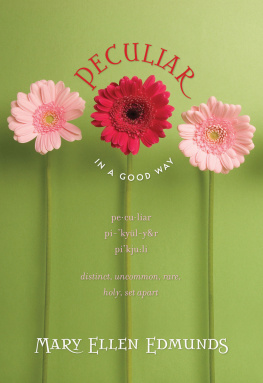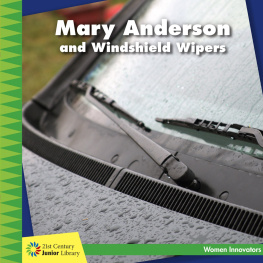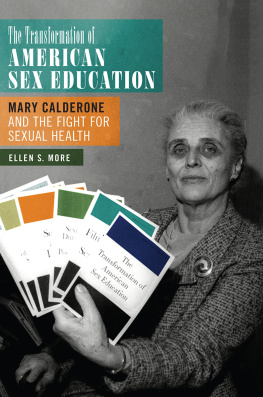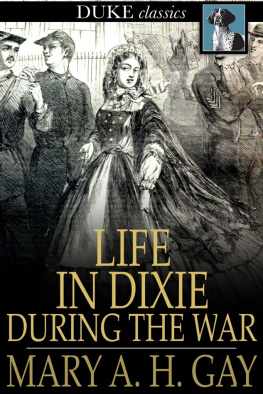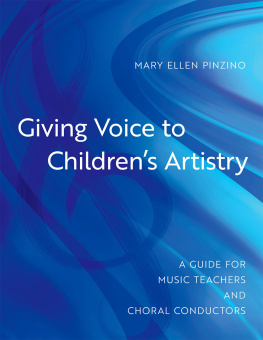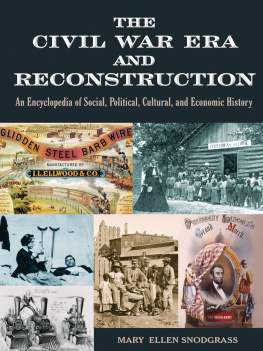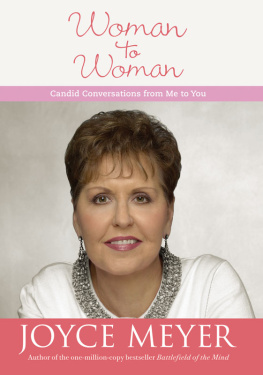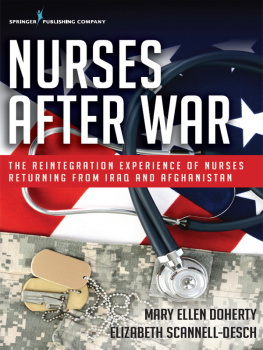Published by The History Press
Charleston, SC 29403
www.historypress.net
Copyright 2015 by Mary Ellen Pethel
All rights reserved
Unless otherwise noted, all photos are courtesy of
THE HARPETH HALL SCHOOL ARCHIVES.
First published 2015
e-book edition 2015
ISBN 978.1.62585.290.8
Library of Congress Control Number: 2014957215
print edition ISBN 978.1.62619.762.6
Notice: The information in this book is true and complete to the best of our knowledge. It is offered without guarantee on the part of the author or The History Press. The author and The History Press disclaim all liability in connection with the use of this book.
All rights reserved. No part of this book may be reproduced or transmitted in any form whatsoever without prior written permission from the publisher except in the case of brief quotations embodied in critical articles and reviews.
FOREWORD
From time to time, parents of young girls ask me about single-gender education. Will my daughter find her place in the modern world if she attends school only with girls? Is single-gender education a wise choice? I always respond with a resounding, Yes. Single-gender education is a superb choice.
After attending the all-girls Ashley Hall in Charleston, South Carolina, and the then all-women Vassar College, I have spent much of my life in a mostly male environment as part of Ingram Industries Inc. and as a board member of Vanderbilt University, Baxter International Inc., Weyerhaeuser, Nashville City Bank, Commerce Union Bank, Nations Bank, Bank of America, First American, AmSouth, Regions, and Ingram Micro. The all-female education I received imbued a culture of achievement, conviction, and accomplishmentnot a culture based on popularity and appearance. The single-gender education setting gave me the self-confidence, capability, and leadership skills to be fully comfortable in that mostly male environment. My educational experience enabled me to learn about myself early in life as I created an identity, explored my interests, and set about realizing my goals.
If the purpose of an education is to enable a girl to achieve her best and become a leader capable of improving the world, single-gender schools such as the Harpeth Hall School produce graduates who possess the skill set necessary to achieve success in any arena. The school emphasizes critical thinking, articulate public speaking, persuasive writing, honorable character, and a respect for others. Harpeth Hall stresses and practices these attributes each and every day, guided by gifted teachers who fully engage students in an academic-centered environment. The school also provides a supportive and encouraging atmosphere where a girl can develop passion for endeavors appealing to her and learn to focus on goals that she sets for herself. Although doing so is a lifelong enterprise, what better opportunity exists to learn than simultaneously among friends and peers?
Mary Ellen Pethels All-Girls Education from Ward Seminary to Harpeth Hall, 18652015 captures the spirit and legacy of single-gender education over the past 150 years. Her narrative explores the intersection of active, visible, and fully engaged women with schools designed specifically for young women. She places the rich history of Harpeth Hall within the broader evolution of all-girls schools and the role of women, education, and the public sphere.
More than any other time since the 1960s, women are showcasing their talents and contributing positively to all sectors of society. All-female schools, like Harpeth Hall, have experienced a revival since the 1990s in part because such schools are uniquely qualified to prepare girls to lead and live full lives armed with confidence, intellect, versatility, and integrity. This book will be of significant interest to those who have benefited from the school as well as young parents pondering if Harpeth Hall is the best school for their daughter. It will also add greatly to the history of women and education, specifically in the American South. I think anyone reading this book will be impressed with the schools history, which Dr. Pethel documents so well and describes in a most engaging narrative.
MARTHA INGRAM
Chairman-Emerita, Ingram Industries
Mother of Robin Ingram Patton, class of 1984;
Grandmother of Christina Chapman, class of 2010;
Reid Patton, class of 2014;
Martha Ingram, class of 2015;
Virginia Ingram, class of 2015
ACKNOWLEDGEMENTS
When I think about my tenure at the Harpeth Hall School, I am convinced that stars do, in fact, align. After completing my PhD history course work in December 2006 at Georgia State University in Atlanta, I began my dissertation with a focus on exploring the emergence of modern college life during the Gilded/Progressive Era. I chose Nashville because of its reputation as the Athens of the South, and I sought to explore issues of gender, race, leisure, sports, and urbanization. By March 2007, I had begun the research process in earnest when I received a call from Kristina Bratt Rigsby, my college roommate and closest friend. Her sister, Lisa Bratt Keen, chair of the Harpeth Hall Science Department, had asked if I was interested in applying for a teaching position at the school. At the time, I was unaware of the historical connections between Ward Seminary, Belmont College, Ward-Belmont, and the Harpeth Hall School. Within eight weeks, I had interviewed, accepted the job, and moved to Nashville.
As I continued work on my dissertation, I realized that Harpeth Hall was a direct descendant of the girls schools heavily featured in my research. In addition to teaching I began working with Emily Zerfoss, Sallie Norton, and Cathy McCainalumnae who had devoted countless hours to preserving the schools history through the newly established Harpeth Hall Archives. If not for the Bratt family and others who helped me land and settle in Nashville, I would not have written this book. It makes one think it was all meant to be.
As the sesquicentennial anniversary approached, I asked then Head of School Ann Teaff if she would be interested in my writing a book to document the schools history and to place the history of Harpeth Hall within the broader context of girls education since the Civil War. I also believed that such a project would firmly connect and clearly explain the lineage of Harpeth Hall with its predecessor schools. To my delight she said yes, and I will be eternally grateful to Ann Teaff for her interest in and support of this project as well as her faith in me. She ably led Harpeth Hall for sixteen years with vision and integrity, transmitting the school not less, but greater, better, and more beautiful than it was transmitted to [her].
The research and writing process for this book owes a great deal to a great many people. In the early stages, Ron Watson, George Tattersfield, and Jennifer Dickey helped me to find the right publisher. Many others gave generously of their time and energy through interviews, conversations, reading, revisions, and, at times, just good old-fashioned inspiration. This incomplete list includes Patty Delony, Dianne Wild, Anne King, Joanne Mamenta, Leslie Matthews, Peter Goodwin, Tony Springman, Janette Fox Klocko, Jenny Byers, Emily Zerfoss, Margie Martin, Marie Maxwell, Susan Timmons, Beth Trescott, Molly Rumsey, Allen Karns, Nicola Pollard, Emily Berry, Jennifer Webster, Polly Linden, Lynn Heath, Alexis Hyrup, Becky Gregory, and Megan Wakefield. Rob and Joseph Pethel, and particularly my parents, Stan and Jo Ann Pethel, have written this book vicariously with me, checking in regularly from Georgia through every development and stage of the process. I remain grateful for their unwavering interest and enthusiasm through many, many conversations about the book. I would also like to express my appreciation to members of the class of 1968, the class of 1982, the class of 2015, and Reese Witherspoon for providing me with wonderful anecdotes and reminiscences about their years at Harpeth Hall and their recognition of the unique experience provided to them through single-gender education. I also offer my sincere gratitude to Martha Ingram for writing such a thoughtful and articulate foreword. I can think of no one better to represent the success that can come with girls education and the continued support of its mission.




